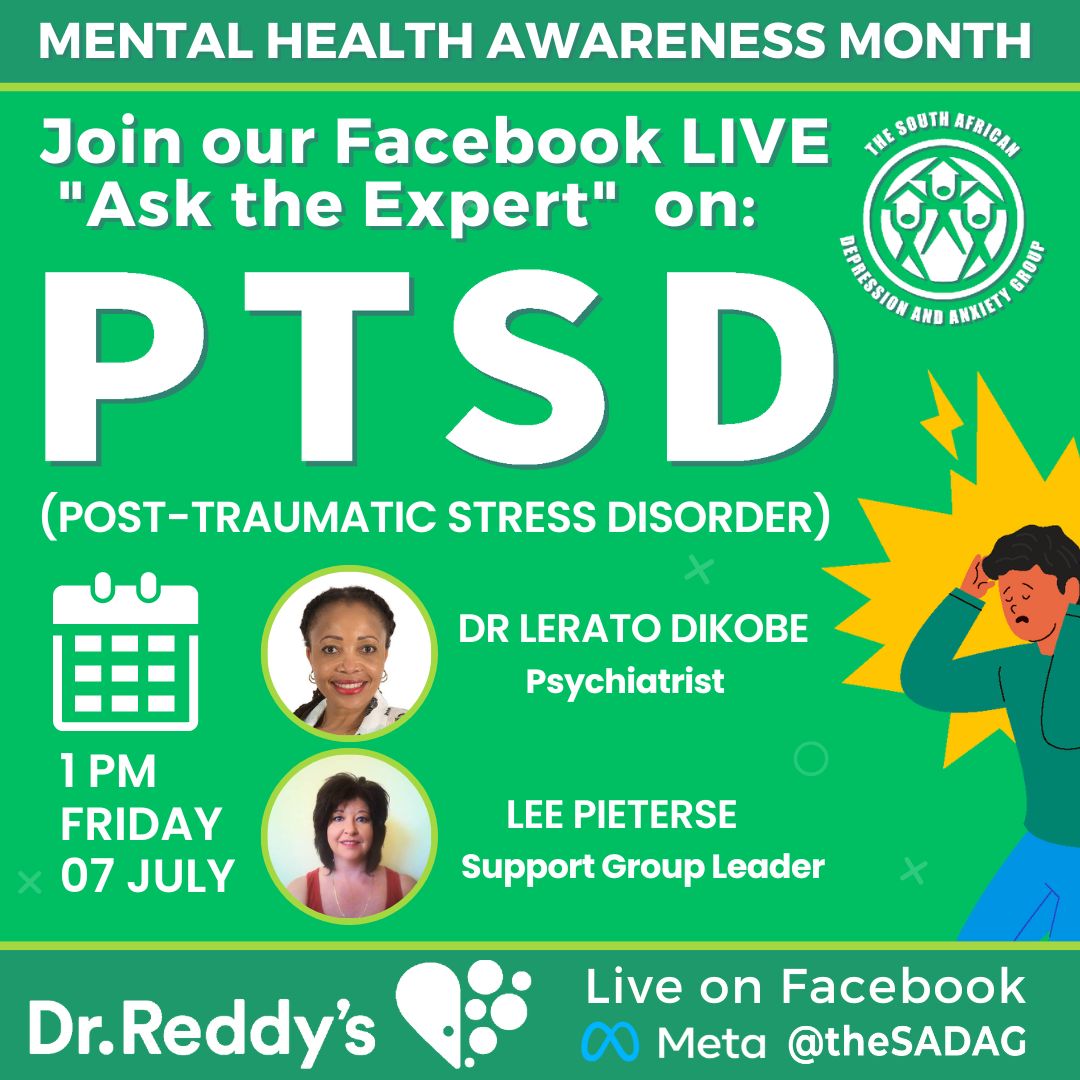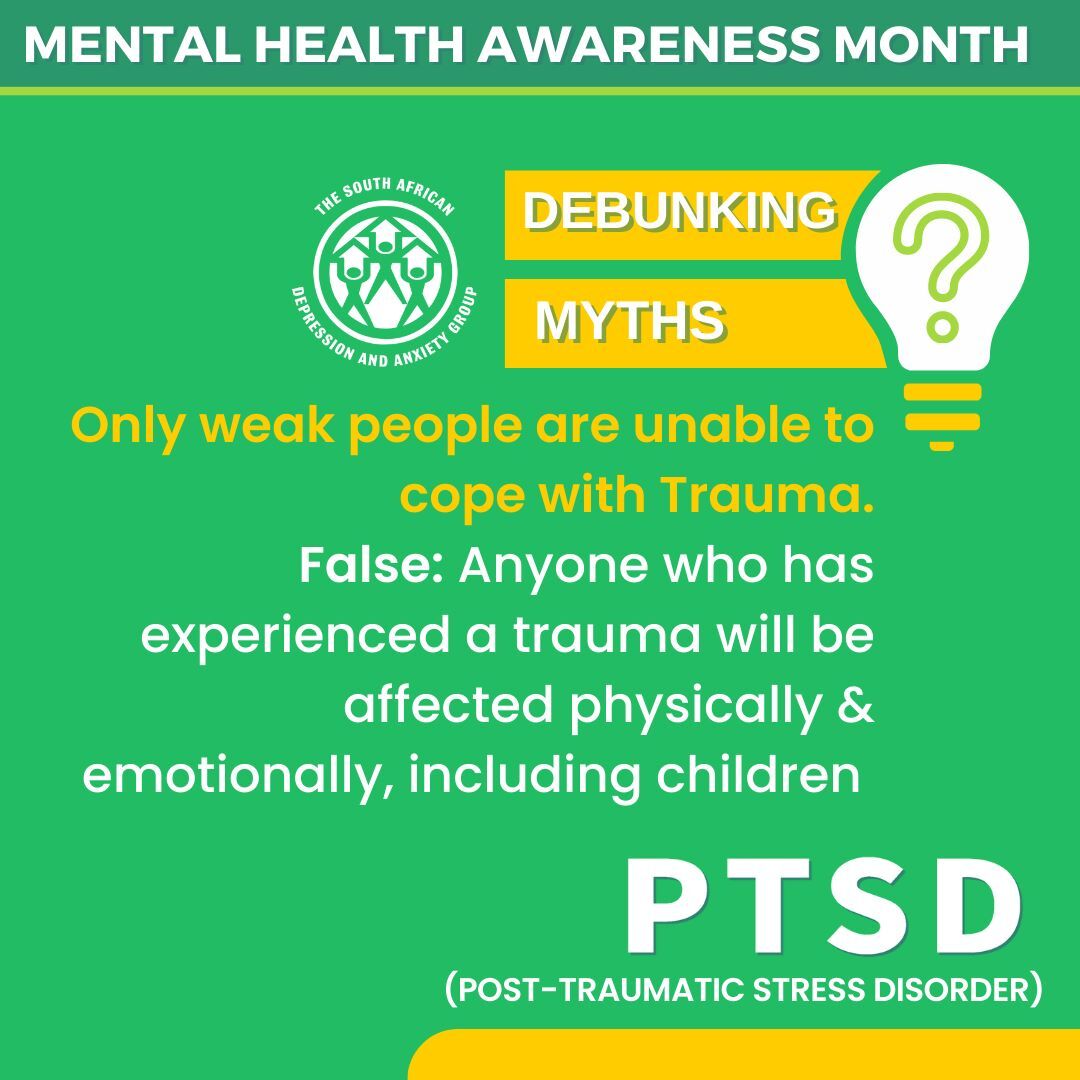Free online Q & A Tackling Trauma and PTSD
5 July 2023
Experts unpack signs, symptoms and getting help
Many South Africans have experienced crime, illness or other trauma such as accidents, divorce, abuse or death of a loved one. Sadly, most trauma victims do not receive the support and help they need. Unfortunately, Trauma has become a common part of living in South Africa, so there is the view that we must just "be brave" or "not complain". The feelings and responses after trauma are totally normal, but not talking about what you've experienced or some of the symptoms or feelings can result in Post-Traumatic Stress Disorder.
PTSD is a very real condition.
And there is help available!
Knowing what signs and symptoms to look out for in yourself or a loved one, can help you to figure out if help or treatment is needed.
Here are some common signs of Trauma:
| ▪ | Flashbacks and constant thoughts while awake |
| ▪ | Distressing dreams and nightmares |
| ▪ | Startled or scared by loud noises, hyper-vigilance and being aware of things around you |
| ▪ | Difficulty falling asleep or staying asleep |
| ▪ | Irritability or outbursts of anger |
| ▪ | Difficulty concentrating |
| ▪ | Avoiding people, places or things that remind you of the event. |
| ▪ | Not talking about how you feel or what happened. |
| ▪ | Feeling disconnected from other people |
Also important to note that not everyone is going to display ALL the symptoms, but if you see several of the symptoms over a period of two or more weeks, it may be time to seek help or speak to someone.
On Friday the 7th of July at 1 pm SADAG will be chatting with Psychiatrist Dr Lerato Dikobe, and PTSD Support Group Leader, Lee Pieterse. They will both impart knowledge, opinions, help and experience on the topic. The LIVE video talk will happen online on our Facebook Page.

Although it may seem obvious that you’d seek help when it becomes difficult to carry out everyday functions, you may tell yourself that you’re just fine, or convince yourself that lots of people have gone through traumatic events and that you will get over it eventually, or believing you’ll get better on your own. If trauma symptoms start to disrupt your daily life including home, work and relationships – then it is time to seek help. Mental Health Professionals recommend seeking help for trauma as soon as you notice signs, especially if they don’t seem to just “go away” or you find that they are happening regularly. The sooner you seek help, the sooner you’ll be able to effectively manage symptoms and cope with triggers.
Tracy Feinstein, SADAG Call Centre “Trauma doesn’t discriminate – it can affect anyone and everyone. And we all react and respond differently to different traumas. Children, Teens and Adults can all be impacted by Trauma and can all have different symptoms – it doesn’t make anyone weak. Getting help can be the bravest thing you can do – reach out to SADAG via Helpline, SMS, WhatsApp, email or social media. "
If you are in need, please use SADAG Trauma Helpline 0800 20 50 26, WhatsApp 087 163 2030 and chat with a SADAG Counsellor 7 days a week from 8 am – 5 pm or SMS 31393 and a counsellor will call you back. For more information, videos, Support Groups and resources on Trauma and PTSD, please go to SADAG's website www.sadag.org


























